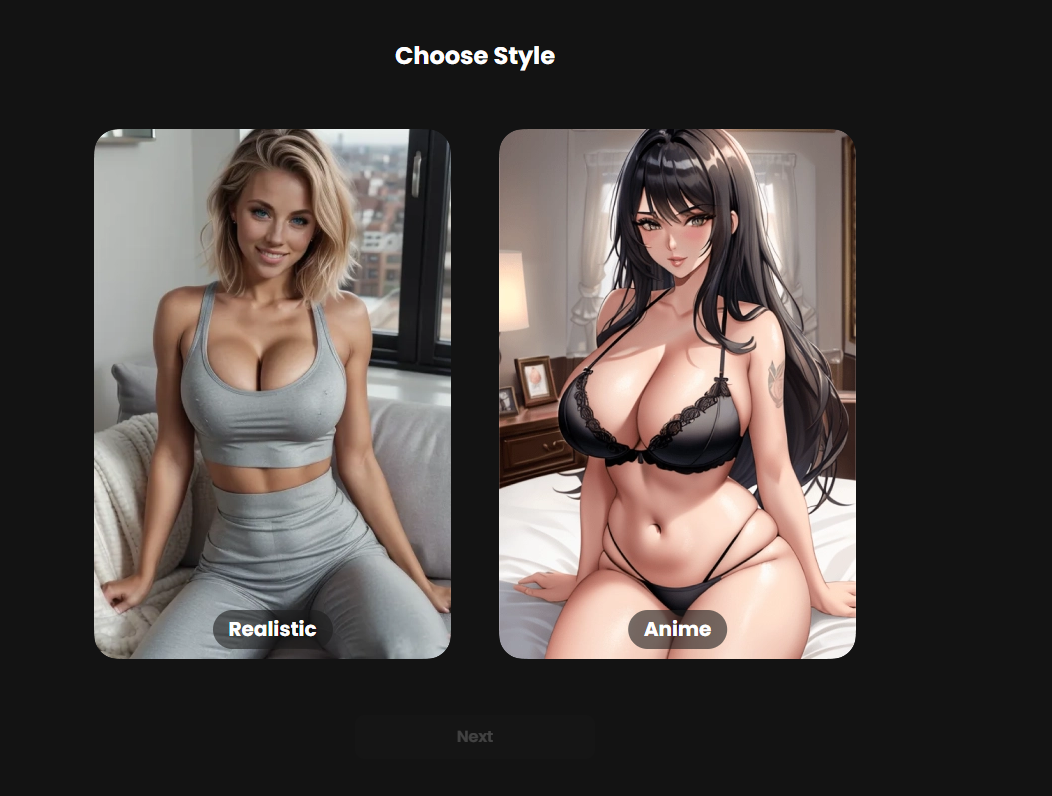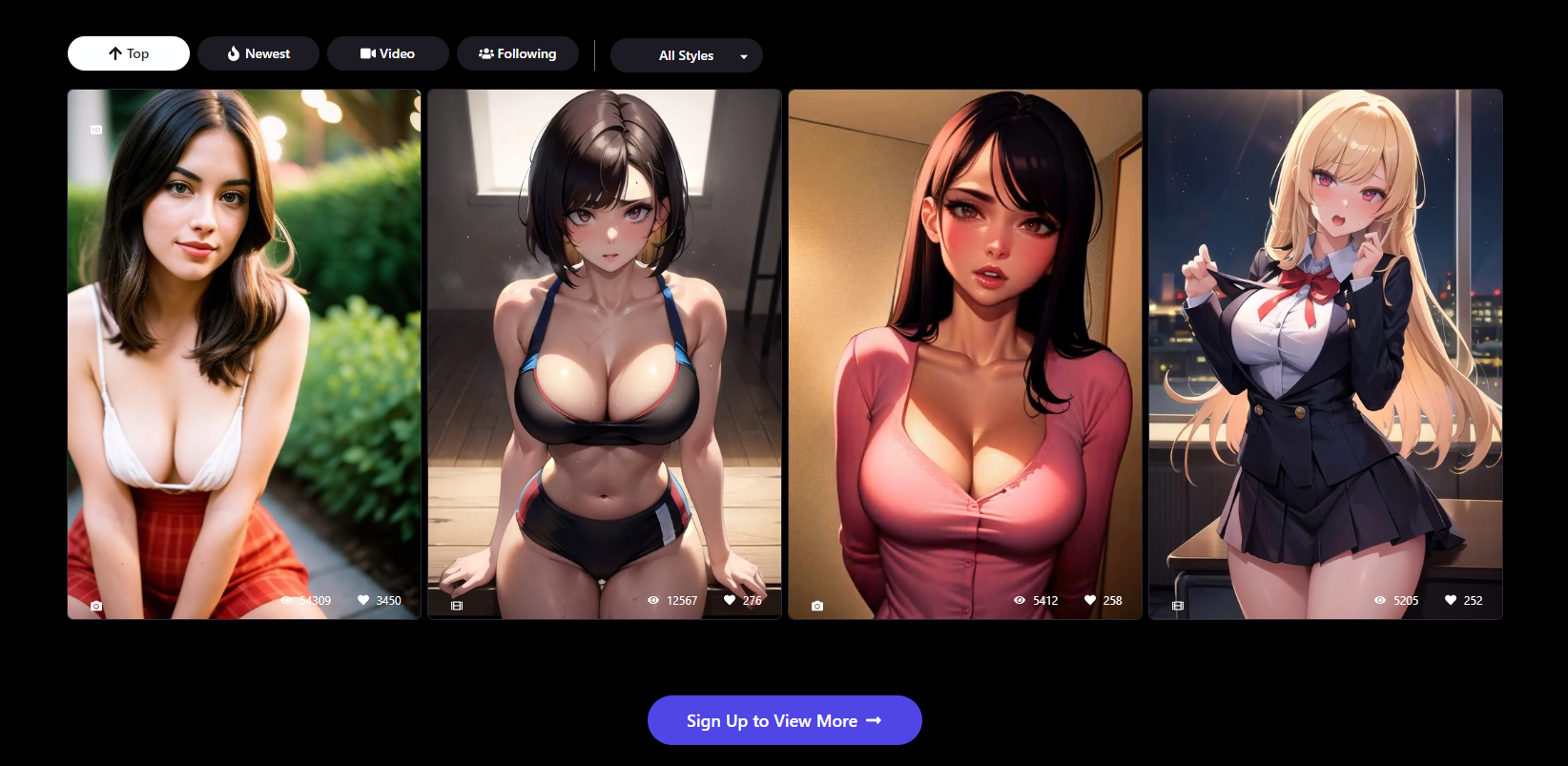Once considered a taboo and niche subgenre of Japanese anime, Ai Ahegao has recently gained mainstream attention and sparked controversy. This unique art style features exaggerated facial expressions of pleasure and has polarized opinions among viewers. In this essay, we will delve into the origins, cultural significance, and the controversial appeal of Ai Ahegao.
The Origins of Ai Ahegao
Ai Ahegao is a subcategory of AI-generated content that focuses on creating anime-style characters with exaggerated facial expressions, often associated with sexual arousal. The term ahegao itself originated from Japanese pornography and translates to weird face. Or, have you ever wondered what it would be like if your favorite superheroes starred in an AI-generated porn film. It is characterized by rolled-back eyes, a drooling mouth, and flushed cheeks – all designed to evoke a sense of extreme pleasure or ecstasy.
The first mention of Ai Ahegao can be traced back to 2018 when a Japanese artist created an AI program called Waifu Labs, which allowed users to generate custom anime characters with various facial expressions. However, it wasn’t until 2020 when Candy.ai launched its platform solely dedicated to creating Ai Ahegao content that the trend truly took off.

How It Works: Candy.ai
Candy.ai offers users the ability to create their own custom anime characters using its AI technology. Users can choose from various preset templates or upload their own images for customization. The platform also allows users to adjust features such as hair color, eye shape, and clothing styles. However, the highlight of Candy.ai’s services is its ability to generate Ai Ahegao expressions for these characters.
Pros:
- Ease of use and user-friendly interface
- Highly customizable anime characters
- Quick and efficient AI-generated Ahegao expressions
Cons:
- Limited options for non-anime characters
- Some designs may appear too sexualized or offensive

The Controversial Appeal of Seduced.ai
Seduced.ai, launched in 2021, takes a different approach to Ai Ahegao. Rather than allowing users to design their own custom characters, it uses AI technology to create realistic portraits of real-life individuals with exaggerated Ahegao expressions. The platform gained immediate attention due to its controversial content and garnered a significant following.
How It Works: Seduced.ai
Seduced.ai offers users the option to upload a photo of themselves or someone else and choose from various pre-set templates for generating an Ai Ahegao version of the image. The platform also allows users to adjust settings such as eye size, drool amount, and blush intensity to create a personalized Ahegao expression.
Pros:
- Realistic portrayal of individuals with Ahegao expression
- No need for designing skills or knowledge
- User-friendly interface with quick results
Cons:
- Potential misuse or invasion of privacy if used on non-consenting individuals
- Moral implications regarding objectification of real-life people

The Role of PromptChan
PromptChan, founded in 2022, takes a unique approach to Ai Ahegao by incorporating storytelling and role-playing elements. The platform allows users to create custom characters and engage in interactive role-playing scenarios with other users, all while maintaining the signature Ahegao expressions.
How It Works: PromptChan
PromptChan offers users a variety of preset storylines and scenarios to choose from, such as schoolgirl confesses her love or innocent maid seduces master. Users can also create their own stories and invite others to participate. The AI technology generates dialogue options for each character based on their chosen roles and reactions to certain prompts.
Pros:
- Creative use of AI technology for interactive storytelling
- Inclusive space for exploration of fantasies without judgment
- Opportunity for role-playing and socializing with like-minded individuals
Cons:
- Potential misuse or exploitation of vulnerable individuals in role-playing scenarios
- Overly sexualized content may promote unhealthy expectations and behaviors
The Controversy Surrounding Ai Ahegao
Despite its growing popularity, Ai Ahegao has faced significant backlash and criticism. Some argue that it objectifies women and promotes unrealistic beauty standards. Others raise concerns about the potential misuse of these platforms, particularly when it comes to non-consenting individuals being portrayed in an Ahegao expression.
There are concerns about the impact of Ai Ahegao on young minds as it blurs the lines between reality and fantasy. Some experts fear that constant exposure to sexualized and exaggerated content may lead to unhealthy expectations and behaviors in real-life relationships.
On the other hand, supporters of Ai Ahegao argue that it provides a safe space for individuals to explore their fantasies without judgment or repercussions. They also believe that it is simply a form of artistic expression and should not be taken too seriously.
The Legal Implications
As with any controversial trend, there are legal implications associated with Ai Ahegao. The use of AI technology to create non-consensual explicit content raises concerns about privacy and consent. While some platforms have strict guidelines regarding the use of copyrighted materials and non-consensual images, there is still potential for misuse.
There is also the question of censorship and government regulations. As Ai Ahegao becomes more mainstream, there has been an increase in calls for stricter regulations to prevent the spread of explicit content involving minors or non-consenting individuals.
The Debate Continues
The controversy surrounding Ai Ahegao shows no signs of slowing down anytime soon. As technology continues to advance, we can expect even more realistic and immersive experiences in this realm. However, it ultimately boils down to individual discretion and personal responsibility when engaging with these platforms.
Is Ai Ahegao simply harmless fun or a dangerous trend with negative consequences? That debate will continue as long as this phenomenon remains popular. It’s up to each individual to decide what they are comfortable with and make informed choices.
Candy.ai, Seduced.ai, and PromptChan offer different perspectives on the controversial appeal of Ai Ahegao. Whether you support or condemn this trend, one thing is certain – it has sparked conversations about technology’s impact on society and raised important questions about consent and censorship. Only time will tell how this debate unfolds in the years to come.

Candy.ai
✔️ Generate AI Porn Images
✔️ Listen To Voice Messages
✔️ Fast Response Time

Seduced.ai
✔️ Generate AI Models
✔️ Save & Reuse Girls
✔️ 300 Images Per Month

PromptChan.ai
✔️ Completely Free To Test
✔️ Edit Your AI Models
✔️ Make Porn Images (no limit)
What is AI Ahegao and How Does It Work?
AI ahegao is a form of artificial intelligence that generates facial expressions similar to the popular Japanese anime ahegao face. It uses deep learning algorithms and neural networks to analyze and recreate these exaggerated, often orgasmic-like expressions in real-time. This technology can be used in various applications such as virtual avatars, video games, or even live performances. AI ahegao works by studying thousands of images and videos to learn the key elements of this expression, then generating its own unique version based on the learned patterns.
Can Anyone Create an AI Ahegao Image Or Does It Require Specialized Programming Skills?
Creating an AI ahegao image would require specialized programming skills, as it involves training the AI to recognize and replicate facial expressions and features. While anyone can attempt to create one, achieving a high level of accuracy and quality would require extensive knowledge in machine learning and computer vision. It is not a simple task that can be done by just anyone without the necessary skills and expertise.
What are the Potential Ethical Concerns Surrounding the Use of AI Ahegao in Media and Entertainment?
The potential ethical concerns surrounding the use of AI ahegao in media and entertainment include objectification and sexualization of women, perpetuation of harmful stereotypes, and lack of consent from the individuals whose faces are used. It also raises questions about privacy, as well as the impact on young audiences who may be exposed to this type of content.
